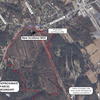Two incumbents declining to seek re-election on Voorheesville School Board
NEW SCOTLAND — This time next month, in addition to personal protective equipment, name tags may be required of all Voorheesville School Board members.
Two long-time members are not seeking re-election at a time when the superintendent is new, too.
With board Vice President Jeannie McDonnell and Trustee Diana Straut not running, coupled with the two years left on Michael Canfora’s four-year term that are also up for grabs, the school board will see three new(ish) faces — Timothy Kremer, who was appointed in December 2019 to fill Canfora’s seat until the election, is seeking a full term.
The newcomers seeking seats are Argi O’Leary; Bryan Richmond; and Tricia Putman, who ran once before in 2016.
Richmond could not be reached for an interview before press time.
Just a year ago, Rachel Gilker, with the backing of the Voorheesville Teachers’ Association and with a school board viewed as generally unpopular, resoundingly defeated sitting board President Doreen Saia. Gilker nearly tripled Saia’s vote count — 775 to 278.
Both McDonnell and Straut say that Gilker’s anti-incumbency ouster of Saia played no role in their decision to retire from the board.
McDonnell’s reasons for not seeking re-election are employment-related.
“Over the past 18+ months my responsibilities have increased quite dramatically, which takes much of my time and energy,” McDonnell told The Enterprise by email.
Straut had more than a few reasons for not seeking a third term.
“I probably could have told you a year ago that it was unlikely I’d seek another term. After two terms, it just seems right to open up the seat for some new energy and new ideas,” Straut told The Enterprise by email. Her youngest child is graduating from high school, she wants to spend more time with my 90-year-old mother, and she is “exploring an idea for a ‘passion project’ that will keep me engaged in the community,” she said.
With four candidates running for three seats on Voorheesville’s seven-member school board, the top two vote-getters will earn full four-year terms while the third-place finisher will fill out the remaining two years of Canfora’s term.
Full-length interviews with each of the candidates may be heard at AltamontEnterprise.com, where each responded to the following issues:
— Finances:
Severe cuts to school aid are likely a consequence of the COVID-caused shutdown, with income- and sales-tax revenues becoming depleted.
Voorheesville is in a comparatively advantageous position when it comes to school funding since only a quarter of its revenues come from the state; the overwhelming majority comes from the property-tax levy.
Last year, a half-million-dollar prescription-drug cost increase led to the loss of multiple full-time jobs.
If there are deep cuts to school aid this year or in years ahead, there will be no easy choices.
Among the tough choices, would you advise opening contracts with Voorheesville’s three bargaining units to reduce salaries and benefits? Or would you recommend raising property taxes to fill the gap? Or would you advise cutting programs — which ones? Or enlarging class sizes? What other strategies might you pursue? Which course would you prioritize?
— Remote learning:
Governor Andrew Cuomo announced this month that New York State will work with the Gates Foundation to develop a blueprint “to reimagine education in the new normal.”
Although the shutdown of schools for the pandemic left many students and teachers unprepared, Cuomo said, “Let’s take this experience and really learn how we can do differently and better with our education system.”
Some educators have pushed back and said remote learning won’t replace the relationships that are essential to education.
How would you like to see education reimagined?
— Growth:
At April’s school board meeting, Assistant Superintendent for Finance and Operations Francis Rielly said that Voorheesville is one of two school districts in the Capital Region that is increasing its enrollment. Regionally, the district also has the highest growth factor — the number of homes coming onto its tax rolls.
Superintendent Frank Macri said in March there were 588 students in the elementary school — 63 more students than the year before — and that number could increase another 10 percent by the start of the new school year.
During last year’s budget crunch, a kindergarten teacher was cut; her position was subsequently restored after the district secured a one-time infusion of state aid.
With spending always tightening and elementary-class sizes swelling, this could be the makings of a long-term, post-COVID budget issue.
How would you deal with that?
How would you deal with being a school district that generates about three-quarters of its revenue from the property-tax levy while expenditures — salaries and benefits — only ever go up? Is there enough space without another bond project or would class sizes have to be enlarged to fit the extra students in the same classrooms?
Click to read or listen to interviews for: Tricia Putman, Argi O'Leary, and Timothy Kremer

